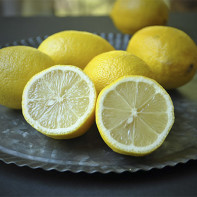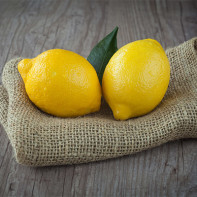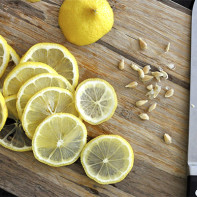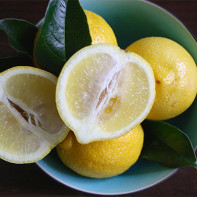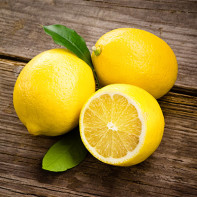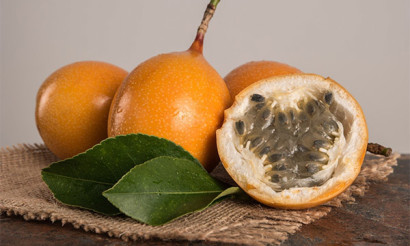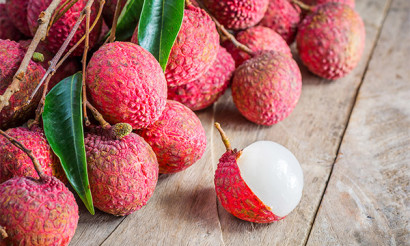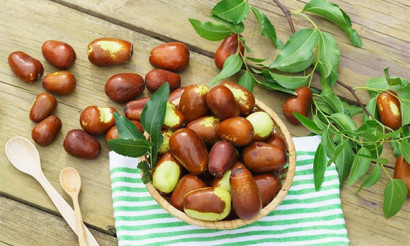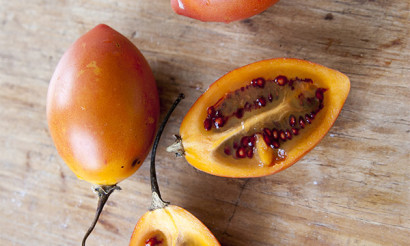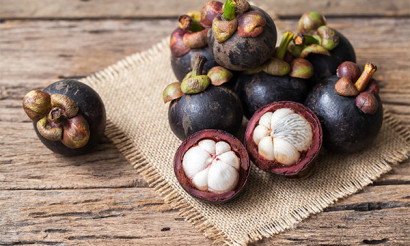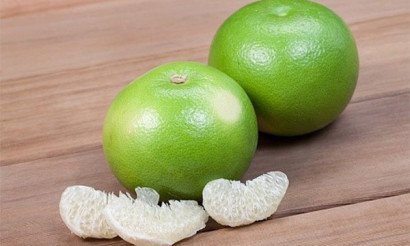Lemon: useful properties and contraindications
A juicy slice of lemon is not only a classic addition to the tea, but also an extremely useful product. It has a mass of vitamins and useful substances, is actively used in official and folk medicine as an effective remedy. Cooks from all over the world add juice, zest in the most exquisite dishes, cook jams, candied fruits, make delicious lemonade and liqueurs.
- What is the difference between a lemon and a lime
- Which is healthier: lemon or lime?
- Composition and calories
- What is lemon good for?
- General Benefits
- For Women
- For Men
- During Pregnancy
- For breastfeeding
- For children
- Water with lemon on an empty stomach: benefits and harms
- The benefits of tea with lemon
- The benefits and harms of honey with lemon
- What is the usefulness of lemon with sugar
- Lemon with salt: benefits and harms
- Useful properties of lemon and ginger
- The Juice of the Lemon
- Useful Lemon Pips
- Frozen lemons - good for you
- Lemon oil: properties and application
- The use of lemon peel
- The power of lemon for weight loss
- Lemon in medicine
- Diabetes Mellitus
- Pancreatitis
- Gastritis
- For the Intestines
- For constipation
- For gout
- For colitis
- For the liver
- For hemorrhoids
- For cholecystitis
- For angina.
- For colds and flu
- From Worms
- Lemon-based folk medicine recipes
- Lemon in cosmetology
- For Face
- For Hair
- For Nails
- Lemon use in everyday life
- Lemon in cooking
- Can lemon be replaced with citric acid?
- Harms and Contraindications
- How to choose and store lemons
- Can I freeze?
- How many lemons are allowed per day?
- Can I Eat a Lemon at Night and on an empty stomach?
- Can I Eat a Lemon with its Peel?
- Can I Eat Lemon Pips?
- What can be made with lemons: Recipes
- Lemoncello
- Lemon kurd - the delicious custard
- Lemonade
- Jam
- Candied
- How to squeeze juice
- Can I Give Lemons to Animals
- Interesting Facts about Lemon
The difference between a lemon and a lime
In the past there wasn't much choice, ordinary lemons were brought to the stores. Today, the choice of citrus fruits is extremely rich, even in a small bazaar or local store you can find a lime. Despite the similarity in name and appearance, they are still different fruits.
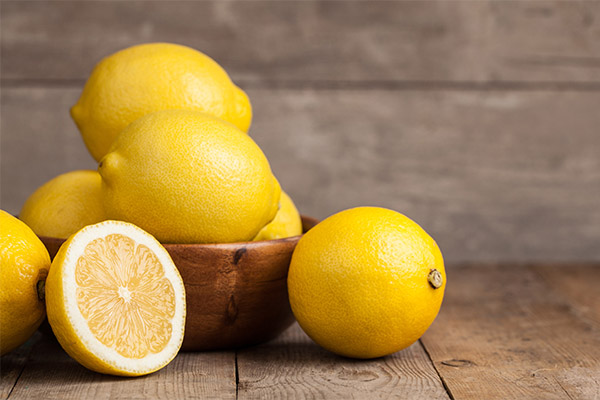
Lemon grows in the subtropics and is less demanding of the climate. However, lemons are harvested only once a year. Its ripe fruit is yellow with juicy skin and flesh. Its taste is distinctly sour. It stores very well, especially in a cold place.
Limes grow in tropical countries and are quite demanding to climatic conditions. But it bears fruit all the time, not seasonally like the lemon. The lime fruit is usually somewhat smaller and has a rich green color, but a less juicy skin. The taste of the pulp and juice is even more sour, with a slight bitterness. Thin skin significantly limits storage, as a rule, the store fruit even in the refrigerator will not last a week.
Which is healthier: lemon or lime?
Both fruits are very useful and at the same time have a very different composition. Everyone knows that lemon is rich in vitamin C, but there is 4.5 times more vitamin C in lime! However, this doesn't determine the winner, because the fruits are really different.
Lemon contains vitamins E, PP, B, a lot of organic acids, pectin and carotene. It significantly improves digestion, stimulates appetite, activates the processes that allow better absorption of calcium and iron. Recent studies have noted a steady decline in low-density lipoproteins-that's the bad cholesterol-when lemon juice is consumed systematically.
Limes are very rich in folic acid and choline (B4), as well as potassium, copper, manganese, and phosphorus. Studies show that limes are especially good for pregnant women, as they are beneficial to the fetus and completely replenish the need for folic acid.
Composition and calories
Lemon is a real treasure trove of useful substances and elements, while having only 34 kcal per 100 g. It contains the following vitamins, micro- and macronutrients per 100 grams of product:
- Vitamin C - 40 mg or 44% of the daily requirement;
- Vitamin B4 - 5 mg;
- Vitamin A - 2 micrograms;
- folate or B9 - 9mg;
- Vitamin PP - 0.2 mg;
- Potassium - 163 mg or 7% of the daily requirement;
- Silicon - 2 mg or 6.7% of the daily allowance;
- calcium - 40 mg;
- phosphorus - 22 mg;
- sodium - 11 mg;
- magnesium, 12 mg;
- Cobalt - 1 µg or 10% of the daily allowance;
- Copper - 240 micrograms or 24% of the daily allowance;
- Zinc - 125 micrograms;
- fluorine - 10 micrograms;
- Manganese - 40 micrograms;
- Iron - 0.6 mg.
Based on the balance of FFA, the composition is optimal and easy for the body. In 100 grams of lemon there are the following substances:
- Protein - 0.9 g.
- Fats - 0.1 g.
- Carbohydrates - 3 g.
- Dietary fiber - 2 g or 10% of the daily allowance.
- Water - 87,8 gr.
- Organic acids - 5.7 gr.
- Ash - 0.5 g.
How is lemon useful?
General benefits
Lemon can seriously support the immune system not only because of vitamin C, but also a complex of micro- and macroelements. Citric acid stimulates the appetite and activates the digestive process. According to recent studies, there is a significant increase in the absorption of calcium and iron against the background of drinking lemon juice or pulp.
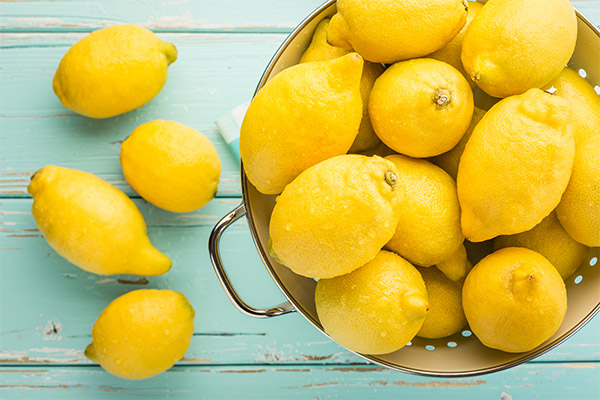
Lemon juice is especially popular with athletes. It is used to make nutritious solutions and refreshing lemonades. The liquid not only invigorates and gives strength, but also normalizes the water-salt balance, which is especially important during workouts, when not only water is lost with sweat, but also the necessary salts.
Lemon is actively used in cosmetology and for external use. It is used to make masks, compresses that significantly refresh the skin, prevent acne and pimples.
For women
Lemon juice or drink in moderate concentration is an excellent remedy for eliminating various toxins and detergents from the body. It also fits well in any diet, as it supplies the body with useful substances with a minimum of fats and calories.
However, the use of lemon in skin care and cosmetology is particularly extensive. It is enough to wipe the skin regularly with lemon slices, it will become much firmer, visually rejuvenated.
The problem of calluses and rough skin is especially acute for women, in which lemon will help very delicately. It is enough to rub the juice into the heels or other areas that require treatment, and after a few minutes the rough skin can be easily removed with a brush.
A good manicure will not do without lemon juice, it is added to warm water, it helps significantly soften the nail skin (cuticle), and then it is easy and painless to remove. In addition, such a bath makes the nails stronger, prevents them from splitting.
For men
Lemon has a positive effect on the cardiovascular system. Statistics show that men are more prone to heart problems. Therefore, it is highly recommended to drink lemon juice or consume it with pulp systematically. This will strengthen the blood vessels and normalize the heart rhythm. Folk medicine also advises to use the zest to improve the cardiovascular system.
Lemons have been used since ancient times to treat male infertility and have been used as an ingredient in various potions to enhance potency. Some modern studies show an improvement in the urogenital system as well as an increase in sperm motility.
Recent studies in the U.S. have confirmed a decrease in low-density lipoprotein levels in people who systematically consumed lemon juice and pulp. Values do not reach therapeutic norms, but the U.S. health care system now recommends lemon consumption for anyone at risk and with borderline harmful cholesterol levels.
In Pregnancy
Pregnant women sometimes want something sour - a great choice would be lemon. He will not only quench the need of the body, but also saturate it with extremely useful and necessary in this position substances. The following effects should be noted:
- This is a good prevention of respiratory diseases, which are extremely undesirable during pregnancy.
- Water with lemon is excellent for getting rid of heartburn.
- Regular use of diluted juice will lead to a mild diuretic effect, which is especially important in the late term, and will help to relieve swelling.
- In the early term, lemon is a great remedy for toxicosis.
- Lemon juice improves absorption, activates the GI tract and improves peristalsis.
When breastfeeding
All the best qualities of lemon also manifest themselves at this stage of a woman's life. It saturates the body with vitamins and essential substances, which means that the milk will definitely be enriched. The body gets some protection against colds. A number of European and Chinese studies have established a connection between the systematic use of lemon and its products with increased lactation. The level does not reach the therapeutic values, but the statistical rate increases significantly.
However, there is a small risk: lemon is an allergen, and there is a chance that the baby has a susceptibility to it. Therefore, it is better to start with small doses and watch the child's condition. However, if the mother consumed lemons during pregnancy, then the probability of allergy to them in the baby is almost zero.
For children
For the growing body, lemon juice and its pulp are simply indispensable. Restricted to give small slices or drinks with a couple of drops of juice can be from 10 months. You should watch how the child will feel whether it will manifest an allergy.
Another caveat lies in the dosage, all is good in moderation. It is optimal to give lemon slices, juice or drink 3-4 times a week, not more often. Excessive consumption will lead to increased concentrations of acids, this will adversely affect the mucous membrane of the stomach, disturbing the normal level of acidity.
However, in general, children can be actively given lemon and beverages based on it. This will prevent frequent acute respiratory infections, especially in the spring and fall period, will raise the average appetite in the child, making him in general more active and cheerful.
Water with lemon on an empty stomach: benefits and harms
This is an extremely popular method in the West to cleanse the body and get a cheerful mood for the day. A morning glass of water with lemon on an empty stomach has become the norm for Beyonce, Jennifer Aniston, Gwyneth Paltrow and other Hollywood stars. It helps to activate the GI tract, saturate it with vitamins and flush out the toxins accumulated overnight. Indeed, you can expect the following beneficial effects:
- Stimulation of the digestive system;
- The removal of some stagnant substances and toxins;
- getting a large dose of vitamins, micro- and macronutrients;
- increasing acidity, which means that the stomach will be better prepared for breakfast.
However, there are also contraindications to this method, namely:
- Acid can have a destructive effect on tooth enamel, especially those with micro-damage. Therefore, water with lemon should be drunk through a straw.
- With gastritis and increased acidity should not drink such water, it can worsen the condition.
- With inflammation of the bladder, kidney problems are also not recommended to drink water with lemon, as it will lead to a diuretic effect.
- Lemon is an allergen, so you should not use a lot of it at once, it's better to start with a small amount and watch the condition.
The benefits of tea with lemon
Tea with lemon is the most classic drink in our country. The invention of such a recipe is shrouded in mystery. Some believe that it came from experiments in Chinese tea shops. Others attribute this recipe to travelers, because the sour tea suppresses nausea and alleviates motion sickness. Even today it is recommended for mild sea sickness.
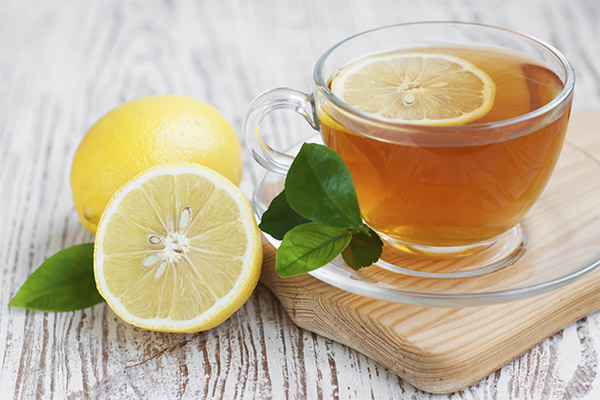
A common misconception is that tea with lemon is rich in vitamin C. This is incorrect. This vitamin is thermally unstable, that is destroyed in hot water or tea. Therefore, to obtain vitamin C, it is necessary to add lemon only to cold drinks.
Black tea with lemon has an antipyretic effect. The tannins interact effectively with the acids in the lemon. This improves the function of the stomach and digestion in general. Additionally in such a tea it is desirable to add raspberries, mint or thyme.
The most useful green tea with lemon, there components significantly enhance the effect of each other, especially antioxidants. Such tea is good to drink when losing weight, it effectively normalizes digestion and bowel function. You can add a mint leaf, honey, chamomile, thyme. Then the drink will not just be useful, but truly medicinal.
The benefits and harms of honey with lemon
Lemon combines well with honey. So it can be given to children, because the sweetness of the honey will turn the acidity of the lemon into a pleasant and appropriate light acidity. At the same time, both components are extremely useful, especially for colds. They will greatly alleviate the overall condition, lower the fever, relieve headaches and stuffy nose, soothe the cough, and give vigor and strength.
However, the benefits are not limited to the fight against fever. The systematic use of a teaspoon of honey with a slice of lemon in a glass of water leads to:
- improved digestion;
- decrease blood pressure in combination with beet juice;
- Acceleration of the metabolism, which is great for weight loss;
- normalization of the heart, strengthening the walls of blood vessels;
- Reducing harmful cholesterol.
There are practically no contraindications in moderate doses, the only nuance - allergies. Due to the presence of honey, this composition can be consumed even with gastritis. The only medical restrictions are gastric and duodenal ulcers.
What is the health benefits of lemon with sugar
Eating a large slice of lemon just like that can be quite difficult. Especially problematic is to make a child do it, who will refuse and capricious. However, there is a way out, you just need to sprinkle the slice with sugar, and in combination with special flavorings or caramel, this delicacy can even be served on the table as a light snack.
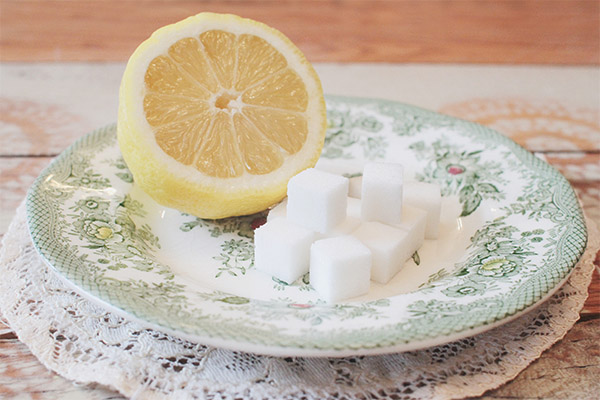
The useful properties remain the same, the only thing is that the sugar increases the calories and the number of fast carbohydrates. But thanks to the lemon, these calories will almost certainly leave the body without affecting the figure.
Lemon with sugar is good for colds, to saturate the body with vitamin C and other elements. However, for prevention and general strengthening of the body, it is better to give preference to honey instead of sugar.
Among the contraindications in the form of allergies, gastritis and ulcers is diabetes. You should also remember that acids interact with the enamel of teeth and destroy it, especially if there is already some damage. Therefore, immediately after consumption, you need to rinse your mouth with water.
Lemon with salt: benefits and harms
The Moroccans were the first to discover the combination of lemon and salt. They also invented how to salt lemons, increasing the concentration of active substances per 1 g of product. It is a traditional local remedy for weight loss. It contains polyphenol, which interacts particularly well with salt. The classic Moroccan slimming cocktail includes 2 teaspoons of salted lemon pulp, a quarter teaspoon of freshly ground black pepper per glass of water. The composition is consumed once a day.
Lemon with salt has an excellent effect on various colds, significantly alleviating the condition. For this reason, it is shown against the background of poisoning and is included in the complex recovery therapy.
The interaction of lemon with salt slightly increases the blood pressure - this should be taken into account, especially for hypertensive people. If we are talking about fermented salted lemons according to Moroccan recipes, it is necessary to correctly estimate the dosage. Such a product is very concentrated, already 5 g is more than enough bite.
Useful properties of lemon and ginger
Lemon and ginger is the perfect combination for summer lemonade. The sourness is organically complemented by the ginger flavor. However, it is not only very tasty, flavorful, but also extremely useful, because the components enhance the action of each other. Digestion is significantly activated, the walls of blood vessels are strengthened, and the heart rhythm is normalized. No cold can resist such a ginger-lemon punch.
Nutritionists recommend this combination to normalize the gastrointestinal tract, cleanse the body of toxins and lose weight; there is even a special preparation - Sassy water. It includes finely chopped fresh cucumber, a few leaves of mint, lemon, grated ginger. All this should be infused in warm water, and after cooling drink half an hour before a meal. The drink is effective and is included in many diets.
Also ginger and lemon are in the group of ancient aphrodisiacs. The medieval recipe will require zest, lemon juice, grated ginger and honey. Additionally, you can season the mixture with allspice and garlic. This is an excellent sour spicy sauce, which improves blood circulation in the pelvic organs and increases male desire.
The benefits of lemon juice
Lemon juice is a vitamin and mineral concentrate. It is recommended to drink it every spring, starting in March. So you can get rid of hypovitaminosis and strengthen the immune system to withstand the traditional spring epidemic. By the way, it is better to choose unripe or even slightly greenish lemons for medicinal purposes. Citrus juice saturates the body with necessary substances, strengthens the vascular walls, so it is prescribed as part of the adjuvant therapy for atherosclerosis.
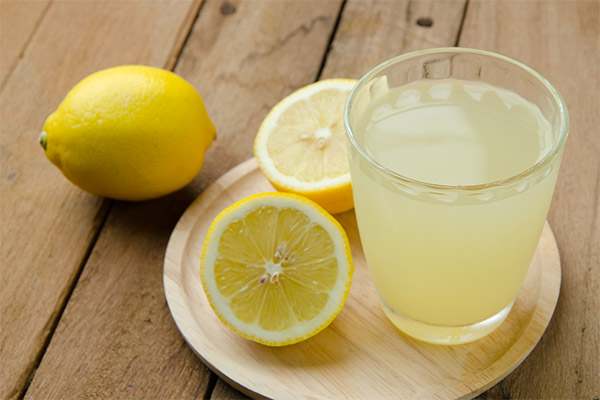
Traditionally, lemon juice is widely used for colds. However, you can not only drink it, but also gargle with it in a diluted form. Thanks to its antiseptic properties, it significantly alleviates the condition, kills many pathogenic bacteria. It is often prescribed for sore throats and pharyngitis.
Cosmetologists actively use lemon juice to lighten age spots and freckles, add it to nourishing masks and creams that saturate the skin and improve its appearance. Lemon juice and olive oil in proportions of 1 to 1 can be used to reduce or completely remove wrinkles. The mixture is rubbed into the skin in the morning and before going to bed. The juice is also beneficial for the hair, especially blond hair - it is saturated with energy, becomes bright, vibrant and silky.
Is lemon seeds useful?
Often lemon pips are simply thrown away, which is wrong, they are also useful and have unique active ingredients. They are not easy to eat, it is better to grind them in a mortar or blender and add to a smoothie or put on sugar.
The pips are capable of thinning the blood. They have a more pronounced diuretic effect. Also the acids inside are unpleasant for some insects and worms. In ancient times, it was lemon pips that were used as an antiparasitic remedy for various worms.
The benefits of frozen lemons
Today, almost everyone has a good freezer, capable of giving out -18 degrees. Freezing vegetable mixes, fruits and berries has become the norm. The lemon is no exception. It stores well in the refrigerator, easily lasts a month. However, you can keep the fruit in the freezer much longer.
Vitamin C is excellent withstanding freezing, it is practically not lost, which can not be said about group B, which with time will lose up to 20%. However, even in this form lemon is fantastically useful, almost as fresh.
Lemon oil: its properties and uses
Essential oils are extracted from lemon peels, using the method of pressing or steam distillation. It is an effective extraction of the most useful and active substances from the fruit. The oil has a tart but very pleasant aroma. Another property - extreme volatility, it gives quite a lot of trouble, especially in everyday life. It is enough to loosely close the bottle and the active ingredients will fly away in a matter of days.
The main use is for scenting of rooms. A large Japanese study at Mie University showed significant efficacy in combating depression and a state of agitation. The effect of increasing concentration has been proven. Thus, when sprayed in offices, the number of mistakes made decreased by 34%.
Lemon oil is actively used in cosmetology, it effectively removes vascular patterns, edema, reduces the oiliness of the skin and removes keratoses. Another effect is to tighten the skin, under the influence of active substances there is a tone, pores are narrowed, some flabbiness is gone. Essential lemon oils are included in many combinations and creams for skin and nails, are included in the formulas of shampoos and hair care products.
The benefits of lemon peel
Often the use of zest is limited to cooking, where it provides the necessary citrus flavor and aroma. However, it is a very useful part of the lemon, which has its own properties.
The zest is especially beneficial for the bones, it has bioflavonoids and calcium. Another use is for mouthwash. Unlike juice or pulp, there are almost no harsh acids, but plenty of vitamin C. This will freshen the breath, give a pleasant citrus flavor to the mouth, and get rid of bleeding gums.
When you need to get vitamin C, you should not use the juice or pulp, but just the zest, because it is in it the most.
The benefits of lemon for weight loss
Water with lemon, the pulp and dishes using this fruit are actively included in almost all diets. The product is beneficial at once in different directions, namely:
- activates metabolic processes, assimilation of useful substances;
- Improves digestion and slightly accelerates the metabolic processes;
- Has a diuretic effect.
Its effect is characterized by a reduction in the number of calories consumed, for example, a glass of water with lemon juice has about 6 kcal, which is less than in any yogurt. A morning serving of liquid can replace a light breakfast, while saturating the body with vitamins and essential substances. It has been proven that you can comfortably reduce your calorie intake by 15% by using lemon juice and pulp in meals as a liquid intake.
Lemon in medicine
Since ancient times, lemons have been used in medicine. They were used for various colds and ailments, drunk as a stomach indigestion and as a diuretic. Lemon juice was used to wash wounds, and it is limited in use even today.
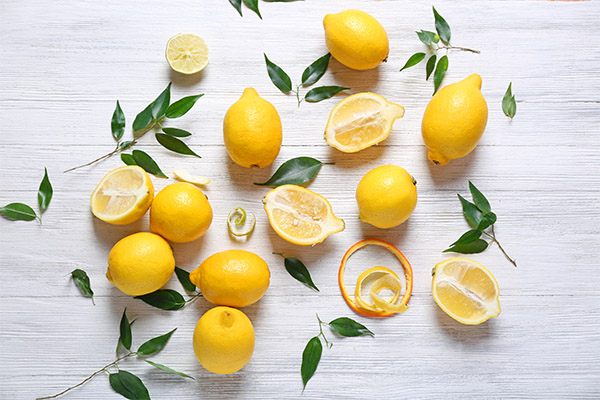
Official medicine "prescribes" lemon in various forms as a dietary food and as an aid in hypertension and diabetes.
Traditional medicine uses lemon everywhere, it is a diuretic, eliminates worms, helps with colitis, strengthens the liver and even relieves hemorrhoids.
For Diabetes Mellitus
Lemon is prescribed for any type of diabetes, as its glycemic index does not give a significant increase in glucose. It can normalize blood pressure, lower low-density lipids in the blood, improve immunity or relieve respiratory disease. The diuretic effect is especially relevant for diabetics, which helps relieve a little swelling and improve quality of life.
Important: The glycemic index of lemon is 20 units.
In pancreatitis.
In acute and severe forms, lemon is contraindicated. However, in the initial stages, with its help, you can relieve irritation, reduce pain. It is necessary to boil the lemon in water for 5-7 minutes. Then squeeze the still hot juice in a raw egg yolk and drink the resulting mixture on an empty stomach. You should refrain from eating for at least 3 more hours. You should drink 5 of these servings on the first day, then 3 servings on the third and sixth days and another 3 servings on days 12 and 24.
For gastritis.
The diagnosis and type of gastritis must be established. Lemon can be of limited help or much harm. In the case of a favorable diagnosis, the juice is usually used in combination with other components, such as honey and calendula. Otherwise, it is forbidden to use lemon, as it can lead to severe complications up to the beginning of peptic ulcer disease.
For the intestines
Since ancient times, lemons were used to normalize the work of the intestines. In the course was the juice or slices. Active substances generally strengthen the work of the entire gastrointestinal tract, relieving it from stagnation. To normalize and improve bowel function, it is recommended to drink a glass of lemon water every morning on an empty stomach.
If there is a negative condition, poisoning, disorder, a few lemon slices with salt should be consumed.
For constipation
Lemon best treats chronic constipation by normalizing bowel function, activating peristalsis. It removes the basis of the entire problem, then constipation goes away on its own.
Persistent, but mild, laxative action has the following solution. In a glass of warm water you need to squeeze the juice of half a lemon, you can have pulp, but without seeds, add a teaspoon of honey and a pinch of salt. Stir everything and drink in the morning on an empty stomach.
In gout
Significant improvement has been noted in gout patients who drink lemon water or eat lemon wedges with tea. Therefore, the inclusion of citrus in the dietary diet is recommended by official medicine.
The mechanism of action is based on the neutralization of purines with lemon active substances. Also uric acid is neutralized and excreted, and the outflow of bile is improved. Lemon will not replace treatment with medicines, but is a very good and tangible addition to classical therapy for gout.
In colitis
Colitis is a serious disease that requires an urgent diagnosis. Under no circumstances should you eat lemon, other citrus fruits, nuts, tomatoes or even milk. Only after the diagnosis is established can the attending physician prescribe a diet. In some chronic forms of colitis, lemon is used in a limited way as part of other dishes or drinks.
For the liver
Lemon is extremely beneficial to the liver, and in any form of intake. Hepatocytes are protected and metabolism is accelerated. The amount of low density lipids or harmful cholesterol is reduced. A slight thinning of the blood facilitates the work of the liver, increasing the formation of serum albumin.
Doctors recommend drinking lemon water the morning after a meal. This will alleviate the overall condition, support a tired liver and cheer up the body.
Hemorrhoids
Official medicine recommends more modern means of treatment for this ailment, but folk medicine advises to alleviate the condition in two ways at once. The first is the normalization of bowel function, softening of feces, which means a more comfortable trip to the toilet with less damage to hemorrhoidal nodes. The second is to strengthen the vessels and skin. To do this, soak a cotton ball in squeezed lemon juice and smear it on the hemorrhoidal nodes. Initially there will be a moderate itching, but it will soon disappear.
For cholecystitis.
An accurate diagnosis of the condition of the gallbladder is necessary. Lemon juice is a moderate choleretic remedy. If the bladder is clogged with stones, however, a severe complication of the condition, up to and including death without immediate and very extensive surgery, cannot be ruled out.
In chronic cholecystitis with small stones you can use lemon juice therapy. Squeeze the juice of one fruit for 1 liter of water, drink every two hours. And in a day you need to drink 3 liters of lemon water. It is also good to use olive oil and lemon juice in the proportion 1 to 1, there add about a teaspoon of grated ginger and garlic. 100 ml should be drunk daily for a month.
In case of sore throat
Folk treatment includes gargling the mouth and throat with concentrated lemon water. It helps due to the strong antiseptic capabilities of the citrus fruit. However, this method has a serious side effect in the form of destruction of tooth enamel, the active substances of the lemon. There are much more effective medical preparations. However, the classic tea with lemon or even a couple of slices (necessarily with skins) will only help the recovery.
For colds and flu
Lemon is very good against different colds and flu. It alleviates the general condition, increases the body's immune response, lowers the temperature, soothes runny nose and dry cough. Various forms are used - inhalations over the juice and pulp, gargling the throat with concentrated lemon water, drinking fresh slices of the fruit, tea, drinking juice or infusions.
Today, lemon is actively prescribed as an adjunctive therapy for any upper respiratory tract diseases and the flu.
From worms
Against parasites, lemon has been used since antiquity, often diluted with pomegranate, cranberry or gooseberry 1 to 1, and then drinking the composition of juice, pips and pulp. However, as modern research has shown, such preparations have rather limited effectiveness. For example, they can really remove ascarids, but other parasites to such substances are simply immune.
The recipes of traditional medicine based on lemon
Folk medicine actively uses lemon to treat various diseases. Many recipes are still relevant today, despite all the development of the modern pharmacological industry.
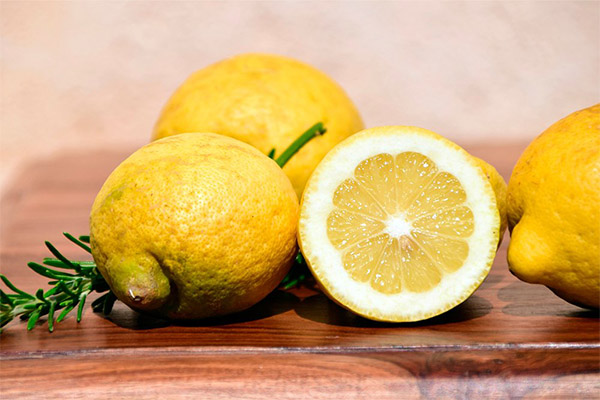
- From hypotension, you can use the composition of the juice of one lemon for 300 g of honey, there add roasted and ground coffee beans, depending on the condition, the dosage varies from 20 to 50 g. Thoroughly mixed mass to take a teaspoon 2 hours after meals once a day. Keep the composition closed, in the refrigerator.
- When the feet are humming after active work, and at night they are seized by painful cramps, you need to cut one lemon, remove the skin and squeeze the juice from half. With a cotton swab, dab lemon juice on the heels and calves. Do not wear shoes or pants until everything dries, and then apply the peel to the area under the knees, you can lightly wrap with an elastic bandage.
- A blueberry-lemon drink is good for diabetes. Two tablespoons blueberry leaves, pour 300 ml of boiling water and infused for 2 hours, after cooling add a glass of lemon juice. Take 100 ml 3 times a day for 20 minutes before a meal.
- In chronic heart failure take 30 grams of prunes, 30 g of peaches and one lemon. Grind prunes and peaches pitted, squeeze the juice of a lemon with pulp. And it is important to extract as much pulp as possible, you can remove the pips and grind everything in a blender. Mix it all and drink 2 tablespoons every morning for 20 days.
- For severe bronchitis take a whole lemon, 4 medium onions and 7 tablespoons of honey. Grind the onion as finely as possible, you can use a grater or blender. Mix the onion and honey until homogeneous and leave to infuse. Cut the lemon and remove the pips, leaving the skin, then also grind in a blender or meat grinder. Mix all three ingredients. Take 2-3 teaspoons three times a day.
- With pharyngitis helps a mixture of lemon, honey and calendula. Squeeze the juice of a whole lemon, add two bottles of calendula tincture and 3 tablespoons of honey. Mix it all and dab it on your throat. It is better to use a long stick with a bandage tampon on the end, as absorbent cotton will remain on the throat and will cause discomfort.
Lemon in cosmetology
Cosmetology uses lemon juice, oil and zest to care for skin, hair and nails. Also these components are included in many creams and shampoos. Lemon gives an extremely positive reaction when used, it is also an all-natural and safe remedy. The only contraindication is individual intolerance or allergy.
For face
- Removal of freckles is possible with a course of 15-20 masks of this composition. Take 100 grams of honey and the juice of one whole lemon. The mixture should be thoroughly mixed. Then soak gauze tissues and put on the places covered with freckles. Maturation time of the mask is 15 minutes.
- Refreshing and smoothing wrinkles cream is prepared on the basis of the juice of half a lemon with four tablespoons of honey. It should be a little warmed up and warm applied to clean skin. Time of action - 5 minutes.
- From dark circles under the eyes will help cotton disks soaked in lemon juice. A very important point: you must take a position so that the juice does not get into the eyes. Hold the compress for 10 minutes.
For hair
- Against dandruff will help decoction from the peels of 4 lemons in one liter of water, it must be boiled for 15 minutes, and then strain. Rinse your hair thoroughly every week in this decoction.
- Refreshing and brightening hair mask is prepared on the basis of the juice of one lemon, 3 tablespoons of cinnamon, 50 ml of olive oil and 50 ml of your favorite hair conditioner. The composition should be thoroughly mixed and then applied to the hair, after half an hour, rinse with warm water.
- To lighten the hair, a mask based on 150 ml of kefir, 1 egg yolk, 2 tablespoons of brandy and the juice of half a lemon is used. All this must be mixed and pour 10-20 ml of shampoo. Apply to the head with smooth movements, distributing along the entire length of the hair, cover with plastic wrap and a towel. The mask can be washed off after 4-5 hours or even the next morning, if a strong lightening is needed.
For the nails
- Soft nails can be soaked in warm water with 20% lemon juice and a drop of oil. The procedure takes at least 10 minutes and should be done twice a week.
- The zest will also help strengthen the nails. You need one lemon, the zest should be squeezed, so it will give the juice and essential oils. This mixture should be rubbed on the nails and keep it for 5-7 minutes, then you can rinse with warm water.
- 100% concentrated juice will help to whiten the nails and give them freshness, the main thing is not to overdo it. Pour the freshly squeezed juice into a small container and dip your hands, hold for about 10 minutes.
Application of lemon in the home
The peculiar features of the lemon make it a universal household remedy. With it you can gently remove grease, especially where the use of chemical detergents is inadmissible, such as on baby dishes or in the oven or microwave. The recipe is simple: pour 150 ml of water into a glass and add 2 tablespoons of lemon juice or a small amount of chopped slices. Boil it inside the oven and keep it closed for 10 minutes. Then you just need to wipe the walls with a clean, dry cloth, and you're done.
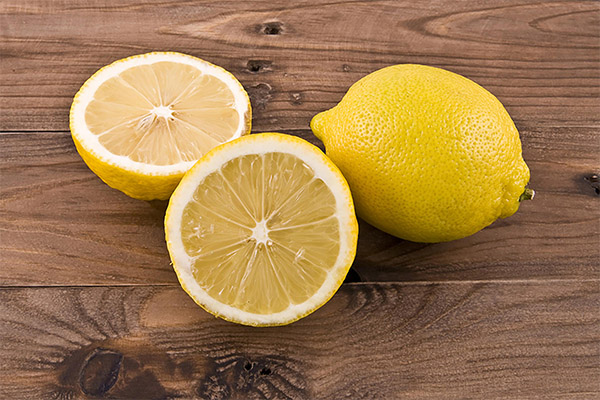
Lemon removes limescale and scale, which is especially useful for multicookers and electric kettles. Lemon juice has excellent refreshing and aromatic abilities - it is a wonderful natural air freshener. And it works even in the refrigerator, you just need to moisten a sponge with lemon juice and put on the middle shelf. In just a few hours the entire refrigerator will be filled with a fresh citrus smell.
Lemon in cooking
This fruit is used everywhere, in many cuisines of the world. A drop of lemon is necessary for sourness in sauces and salads, it is added to marinades and pickles, many alcoholic cocktails require a slice of lemon or its juice. The zest is widely used in preparation for roasting meat or fish to get a persistent and fresh citrus flavor.
Can lemon be replaced by citric acid
Fully replace the fresh and fragrant fruit with bagged acid will not work. However, a partial replacement, sufficient for many domestic and culinary applications, is quite possible. The main thing is to find the right concentration of acid. The closest level to natural lemon is a pinch of powder per 50 ml of warm water. If more acidity is needed, the concentration should be increased.
Harms and contraindications
Lemon is a very useful fruit, which is recommended for everyone to consume regularly. It does not cause any harm to the body, but has some contraindications, viz:
- personal intolerance and allergies;
- Gastric or duodenal ulcers;
- Colitis without clinical diagnosis;
- undiagnosed gastritis;
- cholecystitis without an ultrasound.
Otherwise, the fruit can be given even to children from one year of age, diluting the juice with water. There are no additional cautions about taking during pregnancy or lactation.
How to choose and store lemon
Ripe and juicy fruits are best consumed within one week. Lemons should be bright, smooth and shiny; when pressed on the skins, they quickly return to their original shape. For long-term storage and freezing, it's best to choose fruit that is a bit underripe, a bit harder and a bit greenish at the tips.
Lemons store well in the refrigerator for up to a month. You can use the fruit and vegetable compartment or on the bottom shelf. If you can't use the fridge, you can store it in a small bowl of cold water, but then you have to change it daily.
Can I freeze it?
Lemons can be frozen well, either whole or in portions. Just rinse the fruit with water, dry it and freeze it in a domestic freezer. More than 95% of the vitamin C will remain in such a fruit for many months, but the other vitamins will decay and lose about 20% of their composition. This can be avoided by industrial shock freezing to -40 degrees.
If you have a vacuum cleaner, you can easily freeze the slices, put them in a bag, evacuate the air, and then they are ready for long-term storage.
The zest can be frozen in a jar or in a bag. Juice will require more effort, it should be poured into special containers for the formation of ice, which are available in any refrigerator. The resulting cubes are knocked out and put in a jar or any other solid container. The container filled with ice cubes with lemon juice can be transferred to the freezer and stored.
How many lemons can you have a day?
Don't be overly fond of lemon juice or lemon slices. An excess of even an extremely healthy product can do more harm than good. For lemon, it will be hypervitaminosis and increased acidity in the stomach.
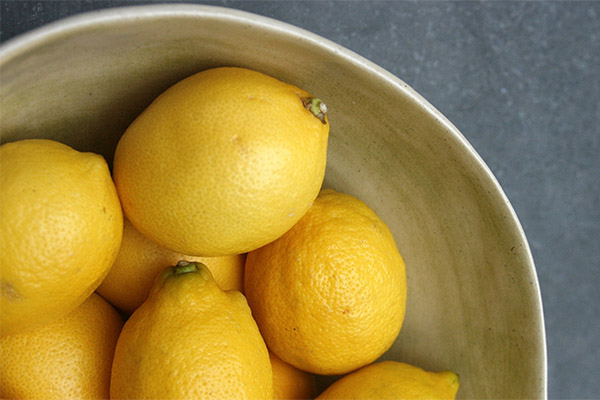
The optimal dosage for daily use is 3 slices or their equivalent in juice, for single use - up to half a lemon per stupor.
Can I Eat at Night and on an empty stomach?
The best solution is to start the day with a glass of lemon water, and exactly on an empty stomach. It is not a good idea to eat lemon or lemon juice at night, because usually the upper parts of the gastrointestinal tract are already empty and have finished active work. The only exception is a very dense dinner or a feast, especially with alcohol. Here a couple of lemon slices or juice will be a great help for the body. The next day will begin in a new way, without the negative consequences of yesterday's feast.
Is it possible to eat lemon with the peel?
The peel contains a lot of useful substances and significantly more vitamin C than the juice and pulp. However, the industrial storage of lemons involves the use of wax coatings along with chemical preservatives. Therefore, it is necessary to wash the fruit very carefully, using a soft brush, or by hand to peel off this coating.
For some illnesses, it is the peel that must be consumed. Moreover, it is less destructive to the enamel of the teeth, so today for rinsing the mouth and throat are prescribed just such infusions.
Can I eat lemon pips?
Lemon pips have a different composition of active substances from the fruit. They are also very useful. The only nuance - they need to be ground in a blender, mortar or meat grinder. Pips have their own taste and flavor, they moderately thin the blood, act as a diuretic. In cooking, such a mixture is added to some marinade recipes, as well as, use for meat, soups and stuffing.
What can be made of lemon: Recipes
Lemon is an integral part of many dishes. It is actively added to sauces, giving them a light sourness and refreshing flavor, indispensable in confectionery, used in many salads and marinades. It is also used for making soft drinks and liqueurs.
Limoncello
This is a classic alcoholic drink that has a great taste, refreshing aroma and is easy to drink. To make it you will need:
- six medium-sized lemons;
- 700 ml of good vodka;
- 400 ml of mineral non-carbonated water;
- 450 grams of sugar.
From the lemons you need only the peel, but it is important to remove only the yellow part, without affecting the white layer, otherwise the liquor will be bitter. It is necessary to pour vodka into a jar and add there obtained from 6 lemons zest, and then cover tightly with a lid. Insist 14 days in a warm place, stirring every day. Then filter the tincture, and it is better to squeeze the zest to get all the flavors.
Syrup to prepare on the basis of water and sugar, the mixture should be heated and brought to a boil. The sugar should completely dissolve in the syrup. After cooling, mix the resulting with lemon infusion and put it on the table.
Lemon curd - an exquisite custard
Thick custard with a citrus flavor is great as a filling, but it can also be simply eaten with tea spoons. To make it, you need the following ingredients:
- three eggs;
- 150 grams of sugar;
- three large lemons;
- Four tablespoons of butter;
- One tablespoon of zest.
It is necessary to put a metal bowl on a water bath, there pour the eggs, sugar and freshly squeezed juice. Whip thoroughly with a whisk and thicken by evaporating, constantly stirring the mixture. When it reaches the desired consistency, remove from the heat and strain through a sieve to remove any lumps. Add the chopped butter to the hot cream and zest, and stir everything together. Chill the ready lemon curd in the refrigerator and serve.
Lemonade
Making delicious lemonade at home is extremely easy, it will be a really natural and very healthy drink, which you can give your favorite flavor. The classic base consists of such components:
- 3 lemons;
- 100 grams of sugar;
- 1.5 liters of slightly carbonated water;
- 2-3 sprigs of mint.
To this you can add lime, strawberries, ginger, vanillin. Prepare everything in a saucepan - you need to pour a glass of plain water, sugar and chopped half a lemon. Bring everything to a boil and leave on low heat for 5 minutes.
In a suitable container, strain the cooled syrup, add the juice of two lemons, slightly carbonated water and mint. Stir everything and leave in the fridge to infuse for half an hour. Refreshing and tasty homemade lemonade is ready!
Jam
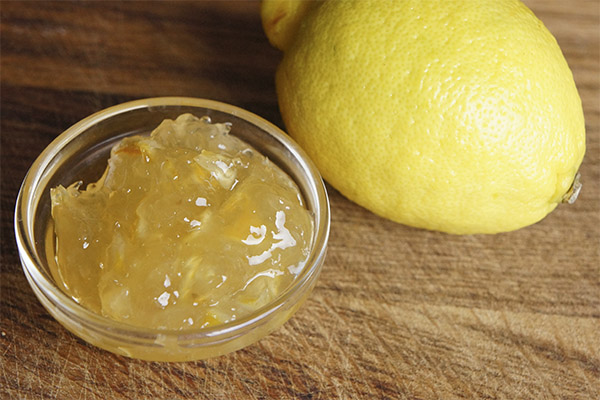
The easiest way to make a flavorful jam requires only the presence of the following components:
- Lemons - 1 kg;
- Sugar - 2 kg.
You can add any additional ingredients and vary the sweetness with sugar. The fruits should be minced through a meat grinder with the skin, but without seeds, add sugar, mix and leave overnight in the refrigerator.
Boil the mass on low heat, without bringing it to a boil. It is enough to achieve a suitable consistency after cooling, after which the product is ready for consumption.
Candied fruit
It is possible to prepare sweet and sour and fragrant candied fruits at home, and it will take literally an hour and a half and the basic ingredients, namely:
- a cup of sugar;
- 500 ml water;
- 1 large lemon.
These proportions are considered classic. It is convenient to make candied lemon slices, it will go in tea, stuffing, as a decoration of a dish. However, such a product is stored for a relatively short time. Candied lemon peels will last several months, but they are more suitable as a flavoring for a dish.
Lemon should be cut into portions-thick circles and remove the pips. Pour a glass of water into a pan and bring it to the boil, take it off the heat and place the lemon circles for one minute in the still hot water. Then cool quickly, ideally using cold water and ice cubes.
Now it is necessary to pour a glass of water into a saucepan, add the sugar and stir until homogeneous, heating over the fire. When the liquid is close to boiling, add the lemon circles and cook over low heat for an hour, without allowing it to boil. Remove the candied fruit and turn out onto parchment to cool. This delicious appetizer is ready to serve.
How to squeeze the juice
The classic method of juicing involves rolling on the table with a squeeze. However, you can squeeze out 30% more liquid if you put the lemon in the microwave for 10-20 seconds. The indicator of readiness is a palpable warm peel, but not hot. Now you can cut the fruit and really get a lot of juice.
It is effective to use a fork, you need to stick it in the pulp and with movements destroy the pulp of the fruit. However, this method requires a mandatory filter or sieve, because along with the juice, the destroyed membranes of the fruit will fall into the container.
Can I Give Lemons to Animals
It is highly undesirable to give dogs and cats lemons, even if they ask for them. There are several constituents at once. Linalool and limonene are well tolerated by humans, but the body of a cat or dog does not know what to do with them. A pronounced toxic dose of these substances is only 38 mg per 1 kg of animal weight. This will result in severe digestive upset, diarrhea, vomiting, shivering, weakness, depression and severe salivation. If the toxic dose is exceeded, a fatal outcome is realistic, even with a quick visit to the vet.
The other component is charm. Cats and dogs have an extremely sensitive sense of smell, and it is physically painful for them to smell such a pungent citrus scent, especially if droplets of essential oils remain on the surface of the nose. Systematic close encounters with sliced lemons can permanently dull an animal's sense of smell.
Interesting Facts about Lemon
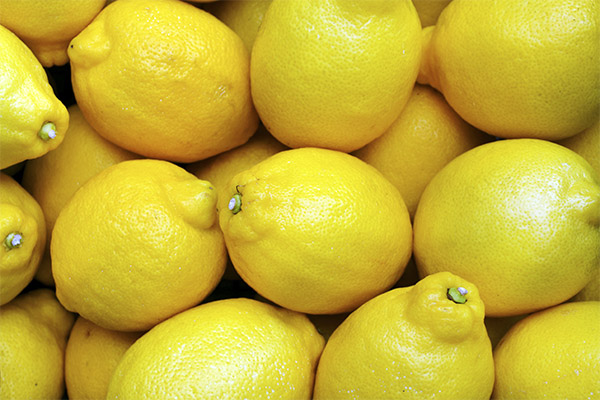
- Today, lemons are grown in Europe and America, but the fruit is native to India and China, and wild varieties still grow there today. By the way, according to legend, the fruit came to Europe with the army of Alexander the Great, and the Greeks called the lemon the Indian apple.
- For a long time scurvy was a real curse of travelers and seafarers. The scurvy was caused by a meager diet, it has been understood since ancient times. However, it was not until James Lind in 1754 that lemon and its juice were offered as an effective prevention of scurvy, appropriate on ships, at the expense of good preservation. From 1795 the royal, and a decade later the rest of the navy, began to use citrus fruits for this purpose, and the scurvy epidemic was defeated.
- Since the 16th century, at dinner parties and balls in Europe, blueberry dishes were served only paired with lemon. The fact is that the berry stained the teeth black, which was considered a sign of peasants and was not befitting aristocrats. Lemon, on the other hand, helped to quickly get rid of the unpleasant plaque.
«Important: All information on this site is provided for informational purposes only. for your own health. Consult a health care professional before using any of the recommendations. professional before using any of the recommendations. Neither the editors nor the authors shall be liable for any possible harm caused by materials."

